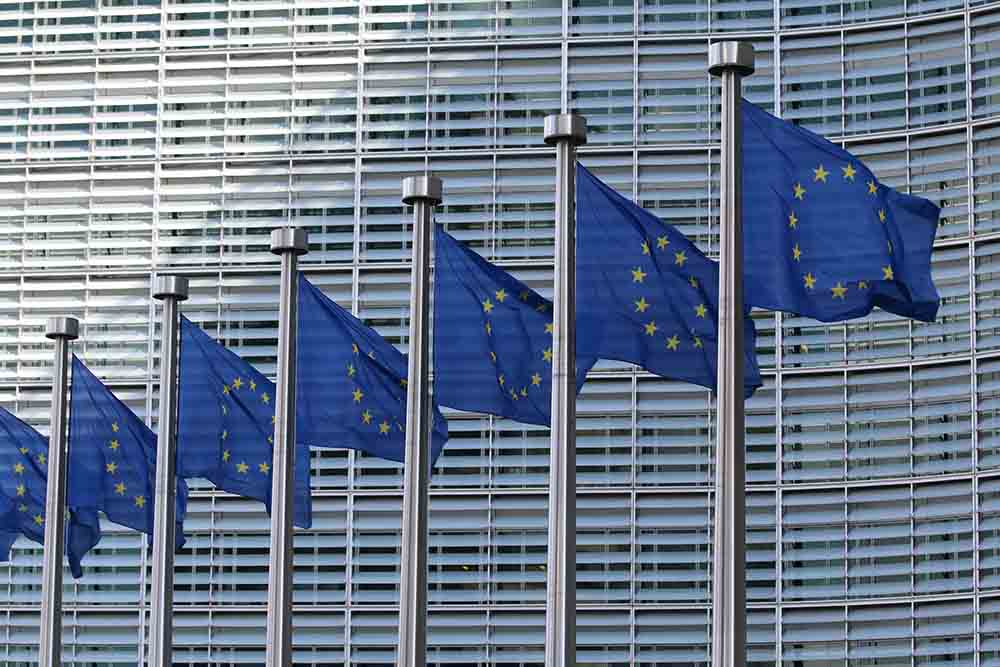The COVID crisis has led to a massive disruption of the economy, which continues nowadays. Movements of people and goods are significantly reduced by the restrictions taken by governments around the world. At the same time, the lockdowns slowed the economy both in Canada and Europe.
In this context, trade has been impacted, but some positive trends show it can help the economy’s post-pandemic recovery. If the government and politicians make the right choices, Alberta and Canada can become more robust.
The EU: a rising destination for Alberta exports
The EU is a promising market for Alberta and Canada. With a population of 445 million people and a GDP of $19.9 trillion, representing 15.3% of world GDP, the EU is the third strongest market after China and the USA.
The EU is the third economic area for Alberta exports after the USA and East Asian countries. Before the COVID pandemic, the EU has become a growing destination for Alberta exports. Indeed, Between 2017 and 2018, Alberta’s exports to the European Union increased by 15.3% to $1.5 billion. Over the past five years, they have grown by 16.29%. The United Kingdom ($259.5 million), Netherlands ($238.0 million), and France ($233.6 million) have been the main export destinations in the EU for Alberta.
Mining products are the principal exports (34% share) followed by agriculture (26% share) and this shows that Albertan trade is related to industrial and primary sectors.
Trade with the European market has been made easier with the Comprehensive Economic and Trade Agreement (CETA), which enacts free trade between Canada and the EU. Under CETA, 98 percent of EU tariff lines are immediately duty-free for Alberta goods. In contrast, before this agreement, it was only 25%, which were duty-free. Moreover, CETA will continue to apply to trade in goods with the United Kingdom post-Brexit.
Canadian trade in the COVID crisis: a mixed trend
Fortunately, some European countries defied the trend and recorded significant increases in exports from Canada. Indeed, from Canada’s State of Trade 2020: “Exports to Germany rose 29% in Q1 2020 (33% in March), supported by precious stones and metals (gold and precious metal scrap). Canadian exports to France and Italy also posted significant growth, up by 29% and 31% in Q1 2020 (11% and 113% in March), respectively. Growth in exports of oilseeds, mineral ores, and inorganic chemicals to France led the way, while exports to Italy rose mainly due to energy products, pharmaceuticals, and cereals.”
But some other countries don’t follow this positive trend: exports to the United Kingdom decreased by 10% in the first quarter of 2020 (-35% in March), and if exports rose 1.9% in the same period, they declined by 24% in March. Moreover, the imports from all European countries have fallen.
Time to boost trade and remove barriers between Alberta and the EU
The economy, weakened by the pandemic and the restrictions, needs to recover quickly. Free trade between Canada and the EU is an important asset that must be used to boost the revival of the global economy. Moreover, Alberta is a powerful exporter of metals and minerals. The EU market relies on Russian and US exports, representing, in 2016, respectively, 12.9% and 10.9% of European import market share. The diplomatic tensions between the EU and Russia could be an opportunity for Canada to improve its share.
But for a successful trade, Canada and Alberta must also remove regulatory barriers that block Canadian competitiveness. Trade is an opportunity for Albertan business and exporters, but domestic red tape remains a real threat for them. Besides, interprovincial trade barriers must be removed. At the same time, barriers must be drawn on the European side. Indeed, five former premiers have written to Prime Minister Justin Trudeau and highlighted that EU countries are still” imposing barriers to imports that frustrate Canadian shipments of pork, beef, canola, and grains to the common market.”
The world is currently suffering from protectionism and the closure of the economy with the COVID restrictions. The pandemic has shown that trade restrictions were counterproductive. In fact, trade has been essential for the fight against the pandemic with the supply of essential products. Reducing regulatory barriers and promoting trade must become an urgent matter.
Alexandre Massaux is a research associate with Frontier Centre for Public Policy from France. His main areas of interest are international relations, trade, and governance. He holds a PhD in Law from the University of Toulon and as well as a master’s degree in Business Administration. Alexandre has collaborated with various think tanks, such as IREF Europe, Montreal Economic Institute, and CEVRO Institute in Prague.
Photo by Guillaume Périgois on Unsplash.



